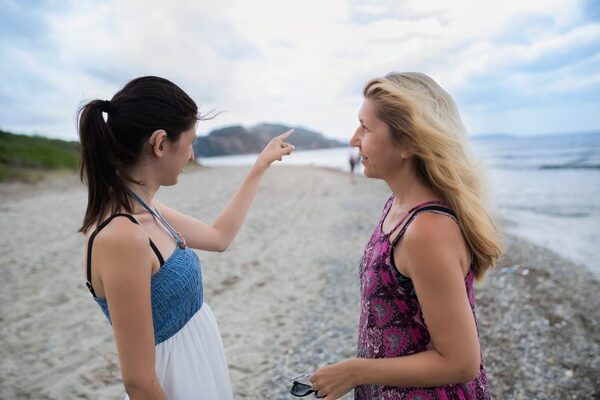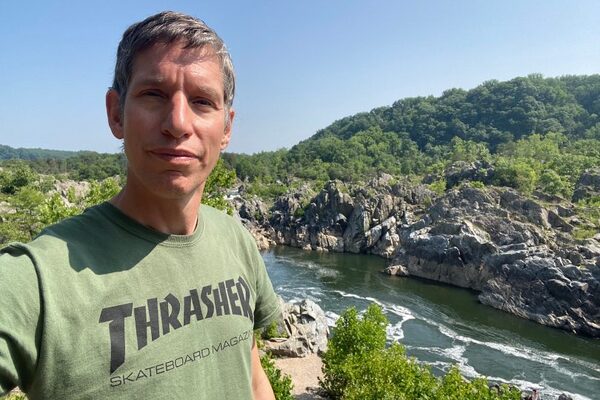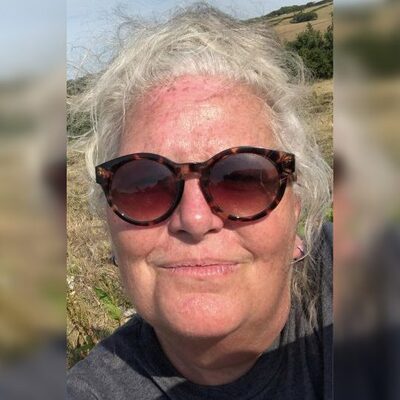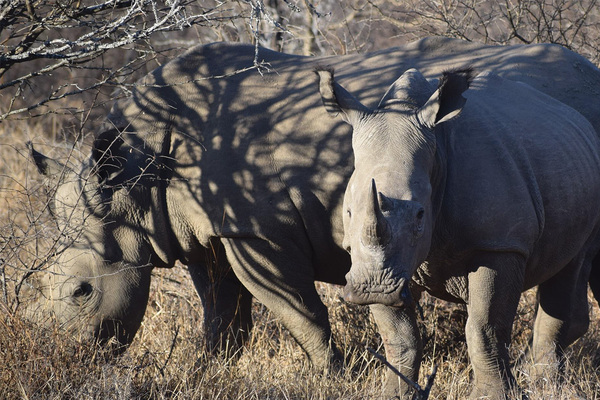'Travel isn't yet as universally accessible as it aspires to be'
 Phil Bloomfield
Phil BloomfieldFollowing Tui’s British Sign Language (BSL) pledge, travel communications expert Phil Bloomfield and his BSL tutor Caroline Palmer write for TTG on the challenges of travelling as – or with – a deaf person.
Tui’s claim earlier this year to have become the first UK tour operator to give customers the option to have their conversations with the firm interpreted into British Sign Language (BSL) struck a chord with Phil Bloomfield.
Bloomfield, a former head of communications and PR at Gold Medal parent dnata Travel Group and now founder of Bloom Communications, has lived experience of the challenges deaf people face while travelling thanks to his "profoundly deaf" plus son Seb.
His travels with Seb, and Seb’s own travel experiences, inspired Bloomfield to start learning BSL for himself to bridge the gap and deepen their relationship.
He’s been aided in his journey by his tutor Caroline Palmer, founder of BSL at Talking Hands in Hassocks, West Sussex, who too has shared with TTG her experience of travelling as a deaf person.
As ever, we’d like to hear from TTG on readers on this topic, and the wider issue of accessibility in travel. You can get involved via one of TTG’s social media channels, by leaving a comment on this story – or by emailing us on feedback@ttgmedia.com.
’We talk a lot about travel’s ability to break down barriers’
My "Plus Son" Seb is a great lad. Kind, generous, mischievous, curious and someone who loves to travel. He also happens to be profoundly deaf as the result of being born prematurely (he was your classic "bag of sugar baby").
As a hearing person, I don't know what that feels like. But through having him in my life, I’ve become much more aware of the barriers that make accessing travel more of an effort for him, and the deaf community as a whole – both as something to enjoy, but also as a profession. That also means I’m also aware of what more can, and should, be done.
As an industry, we’ve talked a lot in the past two decades about how travel has the power to unite humanity and break down barriers. Perhaps that’s helped ameliorate some of the harm we also know it can cause.
Very generally, the dual revolutions of low-cost travel and technology have combined to put travel within reach of more people than it used to be. In purely financial terms, it's no longer the preserve of the privileged few who can afford it. But we'd be naive to think it's as universally accessible as it aspires to be.
There are, for instance, still far too many places where the LGBTQ+ community isn’t welcome. We hear too often about people in wheelchairs struggling to get on or off aircraft or finding there’s no ramp for them at their hotel. And it’s still the exception to the norm to see people of colour featured in travel’s marketing.
'More travel companies should follow Tui's lead'
All of this made it all the more pleasing to see Tui announce it is introducing a British Sign Language (BSL) interpretation service to help its deaf customers communicate with their salespeople and book the holiday they want.
I recently completed my own BSL Level 1 course as the first step on my journey to being able to communicate with Seb (pictured, left, with his friend Archie on a G Adventures trip to Japan) on his terms, rather than always expecting him to communicate on mine. And it's already opened my eyes to how it’s within all of ours power to enact small changes that can make a huge difference.
Being able to hear the complex information about our holidays agents tell us via a poor phoneline, making out announcements about of flight over a PA in a noisy airport terminal, hearing what a guide is saying in a museum with poor acoustics – these are things we all take for granted.
Technology can go some way to bridge these gaps – the cochlear implants, for instant, which provide Seb the approximation of sound. But Tui has shown it’s possible to take responsibility, consider what can it can do, and enact change. I hope more travel companies follow their lead.
And if you don’t know where to start, here’s a clue – just ask. If we want to be an inclusive industry, we must start including the people we're currently excluding in the conversation.
Phil Bloomfield is founder of Bloom Communications and PR. He was formerly head of communications and PR at dnata Travel Group.
'I yearn for the ability to relax when I travel'
I was born deaf into a hearing family. Growing up, I navigated four years boarding school for deaf children, followed by integration into mainstream hearing schools. My constant companions were hearing aids, without which the world was silent.
However, my life took a transformative turn nine years ago when I received a cochlear implant. This device opened up a realm of previously unheard sounds, including high-pitched tones and essential alerts like fire alarms. I can also tell which of my children is coming down the stairs just by their footsteps.
All of my children are proficient in sign language. They have the privilege of both sound and sign. I am aided by modern technology. It is truly remarkable how technology has changed my experience, and also my family's. But it's crucial to remember that at the end of the day, when I remove my hearing aids and cochlear implant, I return to a world of complete silence.
Fortune has blessed me with the opportunity to travel extensively, often with my family. I worked as an au pair for a family with a deaf daughter, journeying to exciting destinations like Bermuda, Barbados, Washington, Florida, and Monaco, sometimes flying first class – including on the Concorde.
But travels were not without communication challenges. Interactions with airline crews were often fraught, but there has been gradual improvement with more air crew members learning British Sign Language (BSL).
This positive change has been complement increased interest in and awareness of BSL, fuelled – in part – by the success of Rose and Giovanni on Strictly Come Dancing. It raises the question of whether it should be mandatory for all airline personnel to learn BSL, similar to foreign languages.
This need for accessibility extends to airport staff as well. I yearn for the ability to relax when I travel, free from concerns about communication barriers, security checks, and explaining the presence of my cochlear implant.
'People's understanding must evolve with technological advances'
Boarding a plane often triggers anxiety, wondering about my seatmate's ability to communicate effectively or my ability to lip-read. In an ideal world, airline staff would be well-versed in deaf awareness and signing.
This same principle applies to travel agencies. With BSL becoming a GCSE subject in schools from 2025, it is high time for companies to follow suit. Deaf individuals, young and old, seek to book holidays, travel with family, or celebrate various occasions. Eliminating communication barriers should be a shared goal.
When it comes to breaking down barriers during travel, the most significant obstacles are communication and the lack of auditory access. Being relegated to specific seats on planes due to safety concerns seems unnecessary. After all, in an emergency, the fundamental need is the same for both deaf and hearing individuals: open the door and get out.
Tui's plans to introduce a BSL interpretation service for those booking holidays is a significant step forward. It shows a commitment to inclusivity and accessibility, allowing deaf customers to book their holidays in a relaxed environment – just like their hearing customers.
While technology continues to advance, the human aspect of understanding and accommodating diverse needs must evolve as well.
Caroline Palmer is a founder of BSL at Talking Hands in Hassocks, West Sussex.
Sign up for weekday travel news and analysis straight to your inbox

Phil Bloomfield
Supplier Directory
Find contacts for 260+ travel suppliers. Type name, company or destination.














